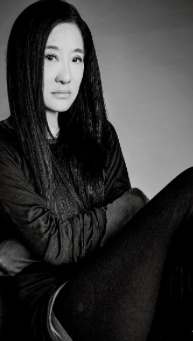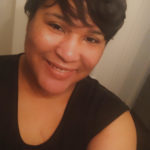 I am turning 30 this year, and I have been nervous about this day for quite some time. Why? I have anxiety that I haven’t done enough, and that I am not enough. When I say that I’m not enough, I think about all the longing I did during my 20’s to constantly be and do better. Even though people around me would point out that I was a hard worker and put my all into everything that I set out to do, I still thought there is more that needs to be done.
I am turning 30 this year, and I have been nervous about this day for quite some time. Why? I have anxiety that I haven’t done enough, and that I am not enough. When I say that I’m not enough, I think about all the longing I did during my 20’s to constantly be and do better. Even though people around me would point out that I was a hard worker and put my all into everything that I set out to do, I still thought there is more that needs to be done.
As I approach this year, I realize that all of that anxiety was for nothing. Now my anxiety was a motivator but also my worst enemy. It motivated me to always put 110% in – but it was my enemy in that it robbed me of that God given joy that should have sustained me. It robbed me of time that I could have spent resting and relaxing instead of creating a nervous state of mind for no reason. As year 29 ends, I’m beyond grateful that I have learned this and I will be patient with myself. I refuse to be disappointed by some societal goals that I feel I have not obtained. Everyone’s season happens in due time.
There are many famous women who have had their “golden season” later in life from their 30’s onward. I have decided to highlight them in this article for anyone who needs a little encouragement to continue on and to know that they are not alone. Whether your time comes earlier or later in life, it will come. The season you are in now is the season that you are meant to be in. I have decided to write on two women whose stories really caught my attention Toni Morrison and Vera Wang.
Toni Morrison
 Toni Morrison was born on February 18th, 1931 and passed away in 2019. Her contribution to writing will forever be remembered. Her parents instilled the love of reading and writing in her during her early years. She was very well educated, and she was not held back due to the color of skin. During these years, she recalled being both the only black, and the only person with advanced reading skills. She went on to study English at Howard University.
Toni Morrison was born on February 18th, 1931 and passed away in 2019. Her contribution to writing will forever be remembered. Her parents instilled the love of reading and writing in her during her early years. She was very well educated, and she was not held back due to the color of skin. During these years, she recalled being both the only black, and the only person with advanced reading skills. She went on to study English at Howard University.
She was a famous writer who penned many great literary works. The first novel she penned was The Bluest Eye. This book was about a young African American girl who believed that her life would be much better if she was cacausian with blue eyes. The novel didn’t sell very well, but she didn’t give up. Her gift for writing would eventually earn a Pulitzer Prize for one of her great novels, Beloved, which was brought to life in movie form in 1998.
Morrison also won a Nobel Peace Prize for her literature. Here is one of her quotes about her literary career on recognizing that she had a gift for writing: “It was very late. I always thought I was probably adept, because people used to say so, but their criteria might not have been mine. So, I wasn’t interested in what they said. It meant nothing. It was by the time I was writing Song of Solomon, the third book, that I began to think that this was the central part of my life…It’s almost as if you needed permission to write. When I read women’s biographies and autobiographies, even accounts of how they got started writing, almost every one of them had a little anecdote that told about the moment someone gave them permission to do it. A mother, a husband, a teacher — somebody — said, OK, go ahead — you can do it.” — The Paris Review, fall 1993. I’m so glad that Ms. Morrison didn’t give up on her dream and that she continued writing because her books are forever cemented in history. She advanced not only women, but black women. Her story encourages me to keep writing even when things are tough and it seems like I am suffering from writer’s block. Thank you Ms. Morrison.
Vera Wang
 Vera Wang is a fashion designer who is known for her beautiful wedding dresses. Surprisingly, she didn’t begin designing wedding dresses until she was in her 40s. As a teenager, she was a very talented figure skater. She fell short of going into the 1968 olympics, but nonetheless she was a force to be reckoned with in this competitive sport. Following this she studied at Sarah Lawrence College and earned a degree in the arts.
Vera Wang is a fashion designer who is known for her beautiful wedding dresses. Surprisingly, she didn’t begin designing wedding dresses until she was in her 40s. As a teenager, she was a very talented figure skater. She fell short of going into the 1968 olympics, but nonetheless she was a force to be reckoned with in this competitive sport. Following this she studied at Sarah Lawrence College and earned a degree in the arts.
Following graduation, she began her career in fashion and eventually became the senior fashion editor for Vogue magazine for 15 years, and then she transitioned into designing for Ralph Lauren. At the age of 39, she designed her own wedding dress because she didn’t like what was in style at the time. This would lead to her starting her own brand and eventually led to the creation of her world renown wedding dresses. What is fascinating about Ms. Wang’s story is the fact that she has had essentially four career changes throughout her life, and she continues to be trailblazer.
I find her story inspiring and it lets me know that we can restart and blossom in many different areas in life. All it takes is passion and the will to do so. In closing, here is a quote from Vera Wang herself on her venture into wedding dress design “Is [40] old? Perhaps I would have preferred to start off at 20 or 30, but I don’t think I would have been anywhere near equipped to know what it takes to be in business. Even at 40, I wasn’t entirely sure I should be doing it. It wasn’t an era for start-ups.
“I’d always felt I should learn and earn, and I’d already had two incredible careers working for others — at Condé Nast and then Ralph Lauren — the best in the industry. Still, I didn’t feel very qualified or secure. I never thought I deserved to found a company … To think I could start, and run, and sustain a business? I knew how hard it was. My father was the reason I did it.
“When I got engaged, at 39, I was a little beyond the age of most brides and on a quest for a dress. I looked everywhere, from department stores to Chanel couture. My father identified that as an opportunity. He didn’t work in the garment industry, but he was a businessman, and he saw that bridal came with lower risks: It had low inventory, few fabrics at that time, and, since people will always want to get married, a steady stream of customers, though they don’t usually repeat. I didn’t know anything about dress design. I didn’t feel ready.
“And when I left Ralph, a lot of doors that had been open to me slammed shut, whether it was a fabric manufacturer or a party I wanted to go to, because I was now so small. Harsh. But my DNA was to find something I felt passionate about, to make a difference, and to work, so that’s what I did.” — Harvard Business Review, July/August 2019.
 Jasmin Ikard resides in Greenville, NC.
Jasmin Ikard resides in Greenville, NC.
There are no comments
Add yours